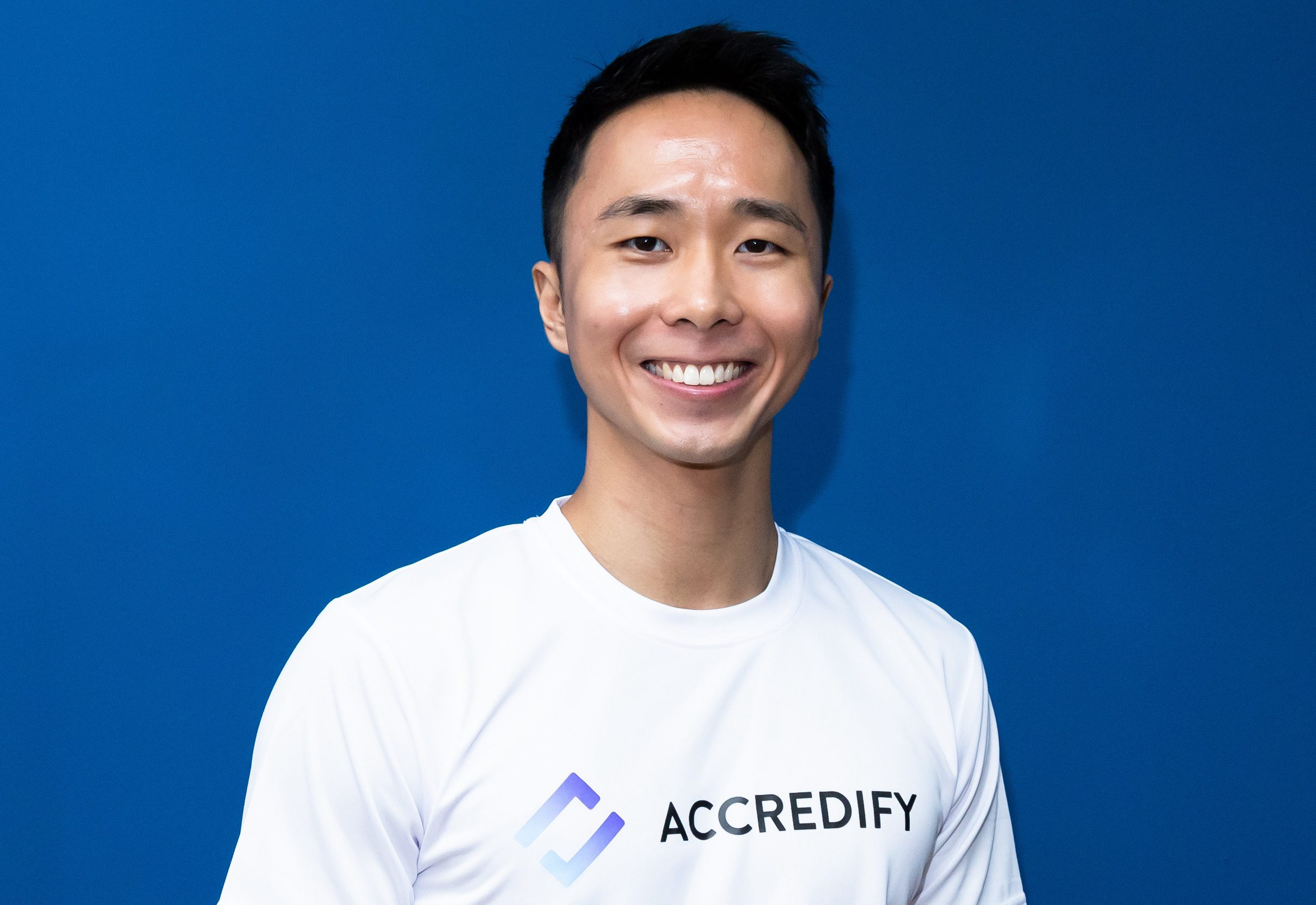Accredify is a Singapore-based company that provides blockchain-powered solutions for digital credential verification and management. The company provides a platform that allows organizations to issue, manage, and verify digital certificates and credentials such as academic degrees, professional certifications, and training courses using blockchain technology to ensure data integrity and immutability. Accredify’s solutions are intended to streamline the verification process, reduce fraud and costs, and improve transparency and security in the credentialing ecosystem. The company serves a wide range of industries, including education, healthcare, finance, and government.
Earlier on Zheng Wei abandoned his career as a chartered accountant to teach himself how to code because he had a keen interest in tech. However, it was the experience he had as an accountant that led to his interest in the blockchain and how it can be utilized to verify documents.
“What intrigued me was the capability of the technology to allow for real-time authentication,” Wei said, “That was mind-blowing because fundamentally, accountants are there to match certain transactions and make sure everything tallies up against one another. When I realized that technology can completely displace that activity, it intrigued me.”
Also, see: Volkswagen invests 1 billion euros in China’s electric vehicle center
Accredify was founded by Wei in 2019 with the aim to securely verify documents, So far, Accredify has processed 12 million verifications on 2 million issued documents and has served 600 users. Today Accredify announced $7 million in Series A funding that it has raised which was co-led by SIG Venture Capital, iGlobe Partners, and with participation from returning investors Pavilion Capital and Qualqro.
Accredify began by collaborating and working with educational institutions to combat the use of forged degrees and certificates. Then it began to expand into other applications, such as corporate registries and healthcare.
For example, during the peak of the Covid-19 pandemic, Accredify collaborated with the Ministries of Manpower and Health to develop a system that verified COVID-19 records, allowing workers to travel. It has also worked with the Accounting and Corporate Regulatory Authority of Singapore to transform its data infrastructure. This means that whenever a new company is formed, it now has a verifiable business profile that can be traced back to the blockchain.
Also, see: Twitter updates its policy to restrict the visibility of tweets that violate platform rules
“I think being able to create this kind of commercial traction and adoption is something that we have done really well,” said Wei.
To onboards clients Accredify first creates an identity for them on the blockchain (it primarily uses Ethereum). Then it goes ahead to create a wallet, or document store, which is a smart wallet on the Ethereum network. It is in charge of managing the client’s private and public keys. The data is then gathered via dashboards or API integration. Other companies in the same space include Unifier, with whom Accredify collaborated during the pandemic
Unifier read documents for their clients while Accredify created them. Startups in the United States, such as Trinsic, work with verifiable identity credentials, while companies in New Zealand, such as MATTR, collaborate with the government to create a digital identity and verifiable data.
According to Wei the key difference between Accredify and other players “is that most of the use cases you see in the market stop at the pilot, proof of concept situation. When it comes to true commercial adoption, as well as scalability, I don’t think a lot of companies have achieved what we’ve done, including creating an entire system that has enabled the COVID-19 management within Singapore to be so seamless.”
Accredify has offices in Singapore and Australia, and it intends to expand its presence in due time by hiring more good hands. Wei says it is also looking into expanding into Japan through pilot programs with government agencies.


















